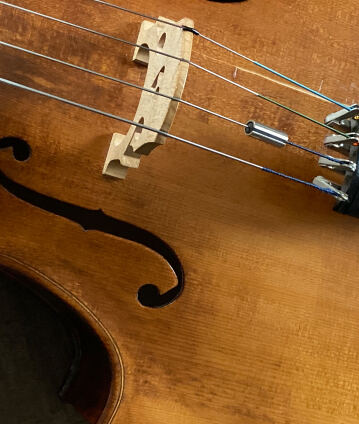Famous cello concertos: From the First Viennese School to the 20th century

Thanks to its warm, vibrant yet profound sound, the cello is one of the most popular instruments in the orchestra. Nevertheless, the number of important cello concertos between the First Viennese School and Modernism was almost limited to the masterpieces of Haydn, Schumann and Dvořák. This changed in the 20th century when composers such as Elgar and Shostakovich took up the genre. This playlist features soloists, such legendary performers as Mstislav Rostropovich and Yo-Yo Ma, and female virtuosos of the younger generation such as Sol Gabetta and Alisa Weilerstein.
It can be no coincidence that the most beautiful melodies and the most cantabile passages in orchestral works by Brahms, Tchaikovsky and Berlioz were regularly entrusted to the cellos. In his Treatise on Instrumentation, Berlioz wrote, “There is nothing so melancholy, nothing more suitable to express tender and languorous melodies than a mass of cellos playing in unison on the high string.”
The reference to the “mass” of cellos and their high register explains why the instrument was rarely used in solo concertos in the 19th century after the works of Vivaldi, Boccherini and Haydn: on its own, and especially with its low notes, it could hardly assert itself against the larger orchestras of the time. Between Haydn’s Second and Dvořák’s B Minor Concerto, between 1783 and 1896, Robert Schumann’s Cello Concerto is in fact almost the only work of the genre that became part of the core repertoire. Schumann solved the problem of tonal balance by creating musical unity through the close interweaving of cello and orchestral voices.
Technical innovations such as the spike led to a greater assertiveness of the cello: the musicians no longer had to hold the instrument with their knees, allowing the sound to develop more freely. Outstanding musical personalities such as Pablo Casals, Yo-Yo Ma and Jacqueline du Pré also contributed to the growing popularity in the 20th century. It is hard to overestimate the role that Mstislav Rostropovich played in the creation of significant cello concertos: no less than three works from this selection – the two concertos by Henri Dutilleux and Vitold Lutosławski and the second contribution to the genre by Dmitri Shostakovich – were commissioned and premiered by him.
In addition to the most beautiful and the most important cello concertos from the Classical, Romantic and Modern periods, our playlist also includes two works that strictly speaking do not belong to this genre: The symphonic poem Don Quixote, in which Richard Strauss entrusted the cello with the characterisation of the tragicomic title hero, and the famous double concerto by Johannes Brahms. In the Hamburg composer’s last major orchestral work, the solo instruments violin and cello enter into a delightful dialogue. In addition to the long-established legendary performers Rostropovich and Yo-Yo Ma, this selection includes Sol Gabetta, Alisa Weilerstein, Truls Mørk and Gautier Capuçon, some of the stars of our time.
Our recommendations
- The Berliner Philharmoniker at the Easter Festival in Baden-Baden
- Seeking and confession: Identities in Classical music
- From cowbells to car horns: Special effects in classical music
- Love stories in performances by the Berliner Philharmoniker
- The Berliner Philharmoniker at the Waldbühne: musical highlights from all over the world
- A conductor recommends: Jakub Hrůša’s highlights